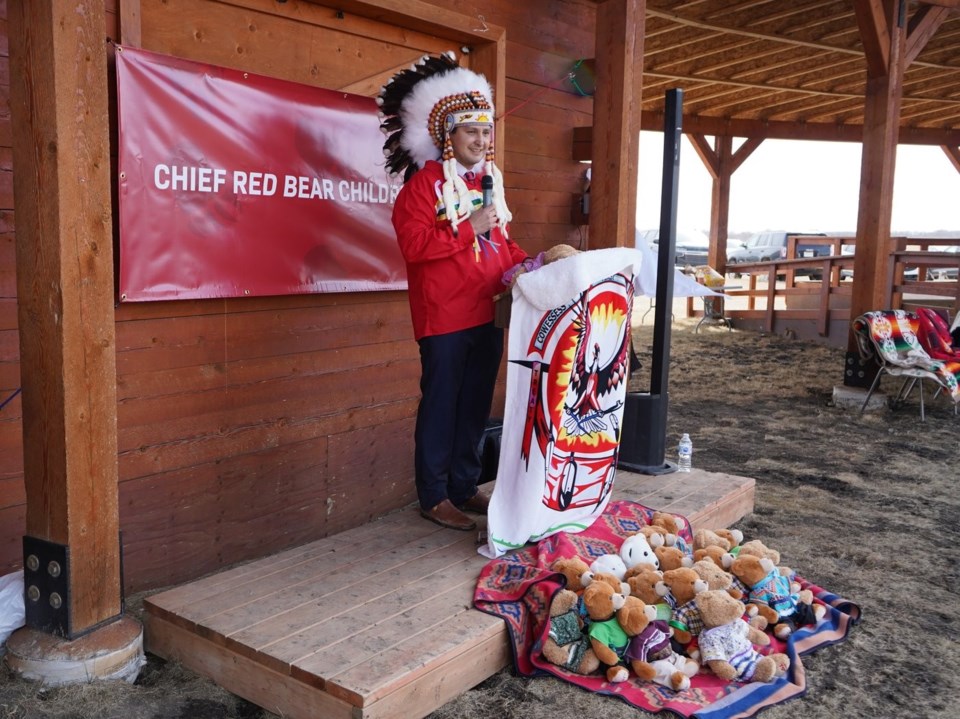Speaking to his community on a windy Thursday afternoon, Cowessess First Nation Chief Cadmus Delorme described the day’s event as a reset.
“Today we hit that reset button,” he said, marking the beginning of the community’s legal and jurisdictional authority over all Cowessess kids, whether they live on its land or in other parts of Canada.
“We don’t have to prove it anymore. We don’t have to go into courts anymore to fight for our children. We can now assert our responsibility,” Delorme said.
Thursday marked the beginning of the Cowessess-created Miyo Pimatisowin Act. The words are Cree and they mean good life. The act asserts the band’s authority over the welfare and care of its kids, while establishing the Chief Red Bear Children’s Lodge as the organization responsible for the programs and services the band is to provide.
The agency’s CEO, Eva Coles, said there’s not yet a physical building or lodge.
“At this point in time it's actually a concept: We will launch the design, the acquisition of staff and the spaces we will occupy after today,” she said. “We are writing the (child-care) protocols with Saskatchewan.”
Coles said Cowessess “has successfully met all the requirements to become a self-governing nation over their children across Canada” under federal bill C-92, called An Act respecting First Nations, Inuit and Métis children, youth and families.
The bill received royal assent on June 21, 2019, effectively making it law.
A federal media release from that date said the bill recognizes “one size does not fit all when it comes to Indigenous child and family services.” It allows Indigenous communities the freedom “to develop policies and laws based on their particular histories, cultures, and circumstances. Free to move at their own pace to implement and enforce these policies and laws.”
At Cowessess, Coles said that means providing “healing, prevention and intervention services.” The Miyo Pimatisowin Act allows for a child to exercise the option to have his or her care period extended to 24 years old, from 18.
The historical importance of the day wasn’t lost on Delorme or Coles, especially in the context of Canada’s residential school systems and its Indigenous child apprehension and adoption policies, also called the 60s Scoop.
The latter of the two can be traced back to Indian Act amendments in 1951; indeed Delorme referenced that year in his speech.
He said the community’s new authority means its kids can choose whatever they want to be — “a teacher, a doctor, a lawyer, a bus driver, a judge" — while receiving the care, knowledge and cultural teachings of their own First Nation.



